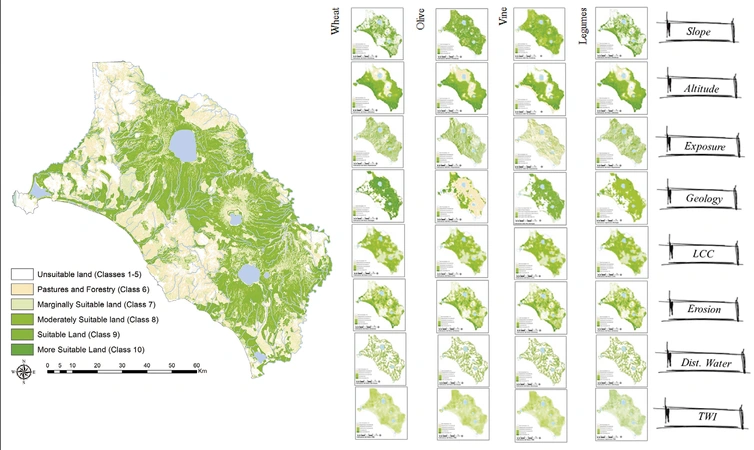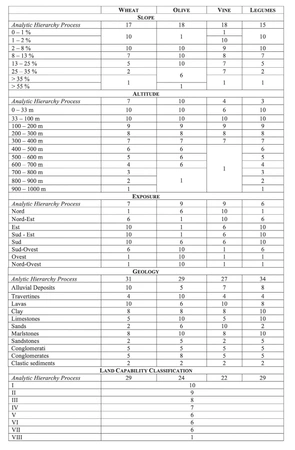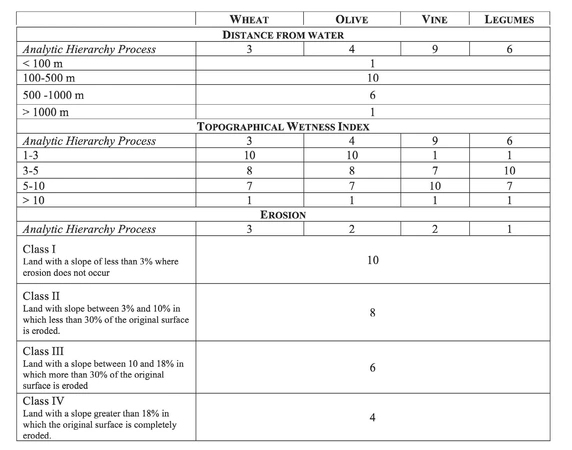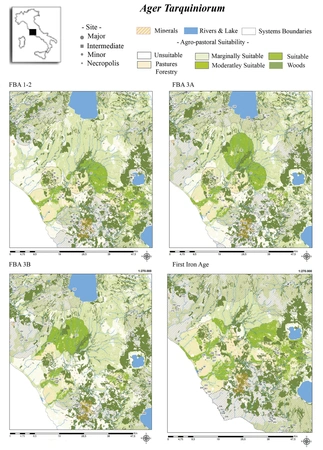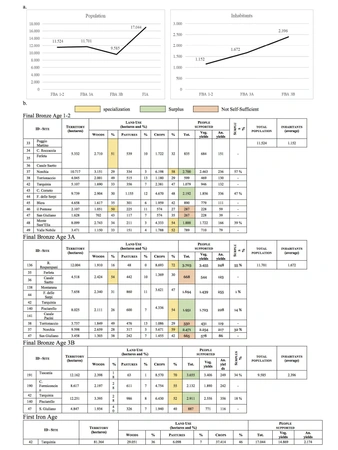Sotgia A. 2023, A predictive model to investigate the agro-pastoral exploitation of ancient landscapes, «Archeologia e Calcolatori», 34.1, 267-278 (https://doi.org/10.19282/ac.34.1.2023.29)
Copy to clipboard Download: BibTeXA predictive model to investigate the agro-pastoral exploitation of ancient landscapes
«Archeologia e Calcolatori» 2023, 34.1, 267-278; doi: 10.19282/ac.34.1.2023.29
Abstract
Thanks to the reconstruction of agro-pastoral land use of a territory, it is possible to obtain much information, both of an ecological nature, and about the populations. By the reconstruction of these dimensions of a community it is possible to understand not only the aspects linked to the exploitation of a territory, the subsistence and demography of a given group, but also more generally the group’s social organization itself. With a series of GIS tools, capable of applying the FAO’s land evaluation techniques, it has been possible to generate a predictive raster model of the landscape with the degree of agro-pastoral suitability inside each cell. Thanks to this model, the agro-pastoral exploitation of a territory can be simulated, calculating the food production of each settlement, as well as the consequent demography maximum sustainability. Thanks to the identification of specialized productions sites and of settlements capable of producing a ‘surplus’, or vice versa ‘not-self-sufficient’, it will be possible to articulate socio-political models, hypothesizing exchange networks or relationships between the different sites. The text illustrates in detail the structure and functioning of the developed model, as well as its applications in the archaeological context of the ‘Ager Tarquiniorum’ during the Final Bronze Age.
Figures
Preview
Subjects:
GIS and cartography Survey and excavations
Download (PDF)Publishers:
CNR - Istituto di Scienze del Patrimonio Culturale
Edizioni All'Insegna del Giglio
This website uses only technical cookies strictly necessary for its proper functioning. It doesn't perform any profiling and doesn't use third party cookies of any kind.
Read our privacy policy for additional information.
By clicking 'OK' or closing this banner you acknowledge having read this information and accept the website's contents.

